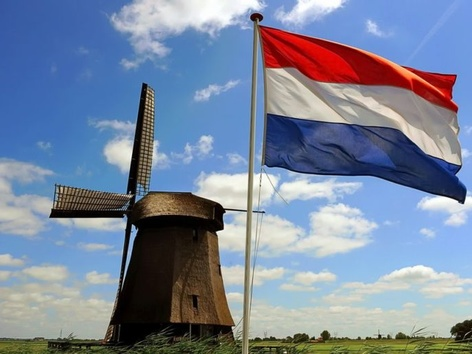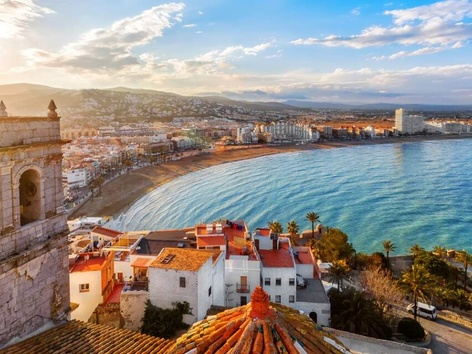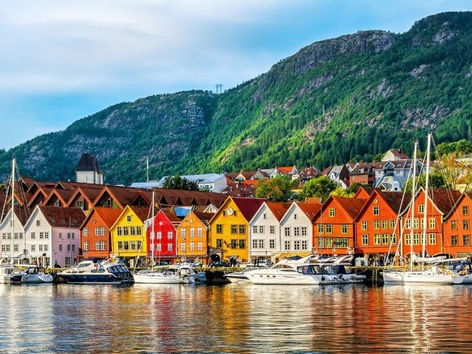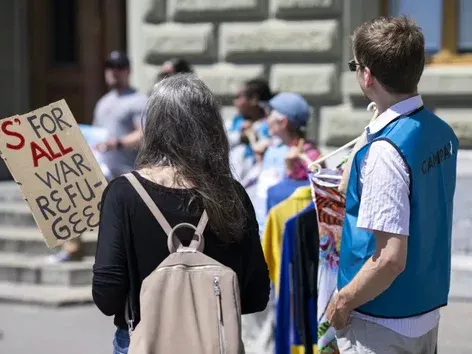Netherlands: rules of entry and residence in 2024. What does a Ukrainian need to know?

The Netherlands hosted thousands of Ukrainian families seeking shelter after the outbreak of full-scale war in Ukraine. Now this country also accepts refugees, but the rules for admission and residence have changed in two years. Find out about the latest information for moving to the Netherlands
The Netherlands, like other EU countries, has been accepting refugees from Ukraine since the first days of the full-scale invasion. The country has approved the Refugee Support Programme and introduced social assistance. We have collected information about the rules of moving to the Netherlands and how to apply for protection in this article.
Rules of entry
Ukraine does not border the Netherlands, so travelling to this country will pass through other EU states. To cross the border, you need to have a valid passport of a citizen of Ukraine to travel abroad.
The child may be accompanied by one of the parents or another close relative. It is necessary to have the appropriate documents to confirm the family ties. A notarised travel consent is required only if the child is accompanied by a relative other than a close relative.
The mandatory vaccination requirements for pets and the relevant documents for them have also been cancelled, but some airlines may ask for these documents when boarding the plane. We therefore recommend that you check the carrier's website if you plan to travel to the Netherlands by plane.
Travelling
As you know, from 1 June 2022 Ukrainians no longer have the opportunity to travel free of charge in the Netherlands on public transport. To travel in you must purchase a valid ticket, such as a chip card (OV-chipkaart).
In the Netherlands, you need a public transport card (OV-chipkaart) to travel on public transport. You can buy a public transport card (OV-chipkaart) at railway stations, in various shops and supermarkets and online.
You can also get a free train ticket in this country, which is valid for one day. To do this, the cashier must be provided with your Ukrainian passport and a train ticket, on which you arrived in the Netherlands from another EU country, but it must not be older than 24 hours. Thanks to this you will be able to travel free of charge to any city in the Netherlands. Travelling by public transport in the country is paid.
Auto
Ukrainians who plan to come to the Netherlands with their own car must usually have an insurance policy, the so-called "Green Card". You can issue it online using the link. If you are traveling with children, they must be in a child car seat.
Finding accommodation
In the Netherlands since 27 February 2024 all centres for displaced persons have been closed, so refugees from Ukraine now have to find accommodation on their own.
Finding accommodation in the Netherlands is not very easy. First of all, you must have a stable income in the Netherlands. Usually landlords require that your income per month is three times the rent.
Renting a two-bedroom flat in Amsterdam will cost 1700 euros. You can find a flat on two websites: Раrarius or Funda. However, when looking for an apartment, be careful not to fall victim to scammers (first of all, pay attention to the price and photos of the apartment).
Visit Ukraine on social media: Telegram | YouTube | Instagram | Facebook | Twitter | TikTok
Where to apply for protection?
In the Netherlands, as well as in other EU countries, Ukrainians can apply for temporary protection status, which will allow you to legally reside in the country, work, as well as provide access to social guarantees.
Registration takes place in two stages. Upon arrival, you must obtain a local identification number (BSN) from the municipality of the region where you plan to reside.
In the second stage, contact the Migration Service to obtain confirmation of temporary protection status. You can make a preliminary appointment on the website. You should have your passport of a citizen of Ukraine with you. After filling out a special form and registration, a representative of the service should paste a special sticker into your passport, confirming that you are allowed to live and work on the territory of the Netherlands. Also thanks to this registration you will be able to leave the Netherlands without hindrance, for example, to visit your relatives in Ukraine and come back. If you do not have a passport, you will receive a separate document instead of a sticker.
Financial assistance
Ukrainians are entitled to financial assistance in the Netherlands - up to 300 euros. This amount consists of two parts: 242 euros - payment for food and 60 euros for clothing and other personal needs.
Refugees living in families will receive an additional 80.9 euros to cover the payments incurred by the host family. Please note that host families do not receive any compensation, including for utilities.
Assistance payments will be stopped if you take up employment or leave the accommodation provided to you by the municipality.
We have also previously told you how to open a bank account in the Netherlands.
Medical services
Ukrainians in the Netherlands are entitled to free medical care. The basic package of services includes: a visit to a family doctor, treatment of acute and chronic diseases, dental care in case of acute pain, as well as receiving glasses, hearing aids and some medications.
However, we would like to remind you that if you are planning a trip abroad, you should take care of the insurance policy - because it is the guarantee of your safety and peaceful stay outside of Ukraine. In order not to have trouble abroad and to be calm for yourself and your loved ones, Visit Ukraine recommends taking out medical insurance in advance.
Where to find a job?
Temporary protection status gives you the right to work. The employer can hire you only on the basis of an employment contract, the term of which cannot exceed the period of temporary protection.
You can look for a job through your local job centre (uitzendbureau). They usually offer jobs for people with no experience, physical labour or temporary employment. There are many jobs that require only basic English or no language skills at all.
You can also search for jobs yourself on Indeed, Nationalvacaturebank and Linkedin.
Education
Schools in the Netherlands are free. Education is in Dutch. Some schools have special Ukrainian classes. However, the Dutch education system is under quite a serious load due to the large number of refugees. Therefore, a child may not be able to start learning immediately. The situation with kindergartens is also complicated. There are long queues, and education there is paid.
All the necessary information about moving to the Netherlands is collected on a single portal, here you can find answers to all questions.
Want to know more? Read the latest news and useful materials about Ukraine and the world in the News section.
Our recommendation for a safe and comfortable trip:
Visit Ukraine Insurance - insurance for a safe stay abroad without unnecessary expenses;
Green Card - compulsory car insurance for traveling abroad;
Visit Ukraine Tickets - book tickets for buses, trains, and airplanes to/from Ukraine and between cities around the world;
Private Lawyer service - professional legal support on visa and migration issues;
Visit Ukraine Merch - buy patriotic clothing and accessories with worldwide delivery.
© 2018-2023, Visit Ukraine. Use, copying or reprinting of materials on this site is permitted only with a link (hyperlink for online publications) to Visit Ukraine.
All rights reserved.
Recommended articles
2 min
For refugees
This year, Spain continues to accept Ukrainian refugees and grant them temporary protection status until March 2025. Find out more about the rules of entry, stay, the procedure for obtaining temporary protection in Spain in 2024 and what assistance Ukrainians can expect
20 Jul. 2024
More details2 min
For refugees
This year, Norway continues to provide asylum to Ukrainian citizens, but the government will introduce certain restrictions on their stay in the country. Find out more about the rules for entering Norway from Ukraine in 2024, how to get protection and apply for financial assistance
23 Oct. 2024
More details3 min
For refugees
Ireland continues to support Ukrainian refugees fleeing their homes due to Russian aggression. In 2024, the Irish Government has slightly changed the conditions for Ukrainians to stay, in particular, financial assistance to refugees has been reduced. Find out how much payments in Ireland will be reduced from September 2024 and other important details
13 Aug. 2024
More details2 min
For refugees
Back in 2023, the Swiss authorities announced their intention to integrate Ukrainians into the local labor market, but no actual decisions were made until September 2024. Find out more about the situation with refugee employment in the country, what changes can be expected by 2025, and what will contribute to more effective support and adaptation of Ukrainian citizens in Switzerland
25 Sep. 2024
More details

